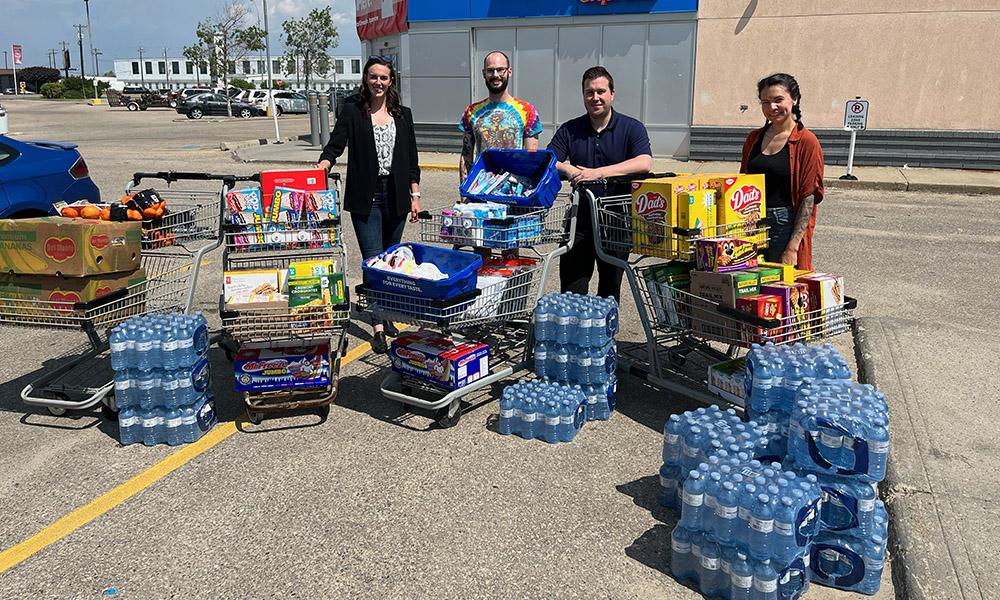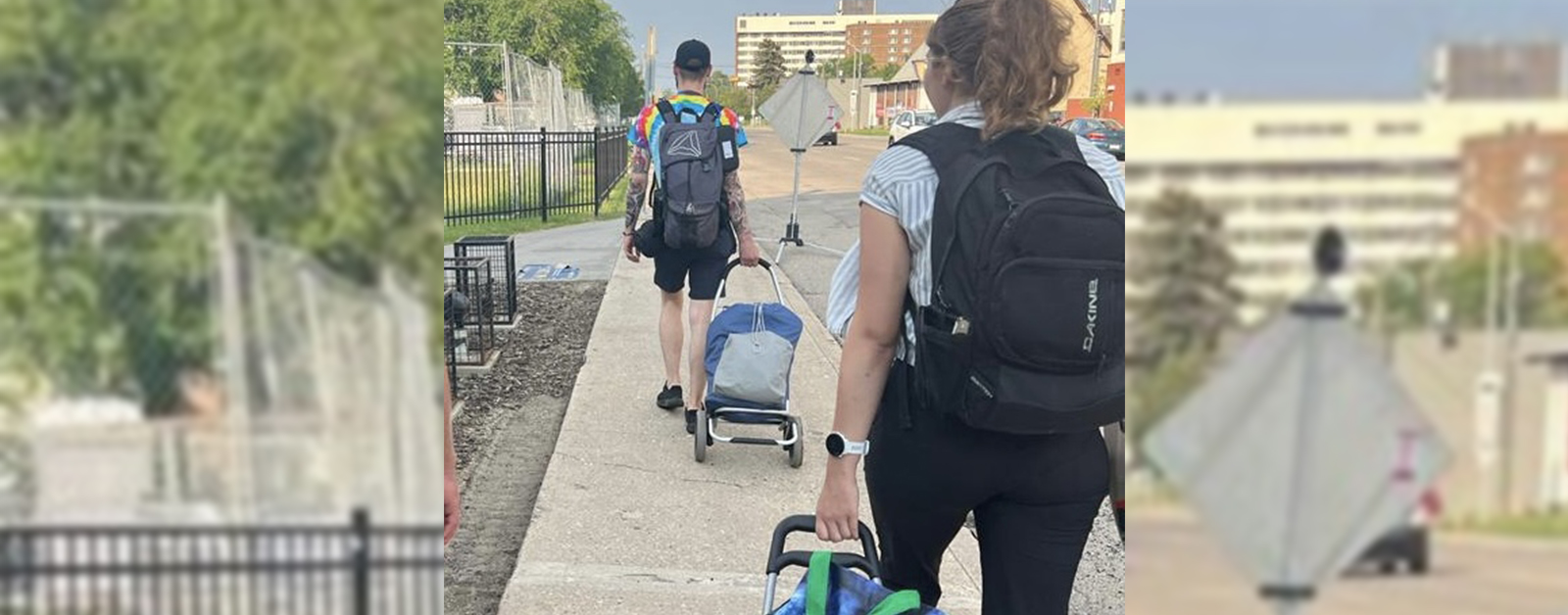Since April, the two MacEwan University Bachelor of Social Work students have been packing snacks and harm reduction supplies a couple of times each week and sharing them with unhoused residents of downtown Edmonton. Creating the Street Outreach and Resource Team was the students’ way of responding to the overdose crisis they saw first-hand during their practicum placements and volunteer work.
“It’s really eye-opening when you see how many people became unhoused and disconnected from services after temporary winter shelters closed,” says Johnson. “We talked to people, kept track of the things they were asking for – snacks, water, socks – and then connected with Alberta Health Services and StreetWorks to get harm reduction supplies we could hand out as we walked through the inner city.”
Johnson and Huxter weren’t on their own for long. Response to their grassroots efforts has been greater than either of them expected.
“I thought it would just be Mitchell and me out there, handing out supplies and giving everyone a smile, but now we have over 20 volunteers,” says Huxter.

Members of the Street Outreach and Resource Team accepting donations.
The group coordinates their outreach walks through the community on evenings and weekends when shelters and other services tend to be closed. That means it’s not unusual for them to respond directly to the opioid crisis.
“A few weeks ago, we responded to two different overdoses in the first 15 minutes of our shift,” says Huxter, who is certified to train others to administer Naloxone, which can reverse an opioid overdose. “One was a severe poisoning case where we needed to give five doses of Naloxone and perform CPR. Seeing those people come out of that overdose state and get up and walk around is really rewarding, but it also shows that there is such a huge need.”
And while helping people in trouble is important, Johnson says their aim is not to rescue people.
“We’re just out there talking to community members, treating them like human beings, suggesting resources they can access and giving them what they need at that moment,” he says. “Sometimes it’s a tarp from the dollar store or a toothbrush. Other times, it’s being able to have a conversation or share a hug.”
Huxter agrees. “Everyone deserves compassion, including people who are unhoused or use substances. Instead of presenting obstacles for people, our goal is to walk beside them, wherever they are when they need someone to be there.”
The two students hope to extend their efforts to include advocacy work for harm reduction on campus over the coming year.
“Drug poisoning doesn’t just happen on the streets,” says Johnson. “A lot of people don’t know what to do or are scared that they will get into trouble if they try to help someone. It’s important to break down myths and help people know how to respond.”
When Huxter and Johnson are out on the streets, the response they most often get is one of gratitude. “A lot of gratitude and a lot of thank-yous,” says Johnson.
